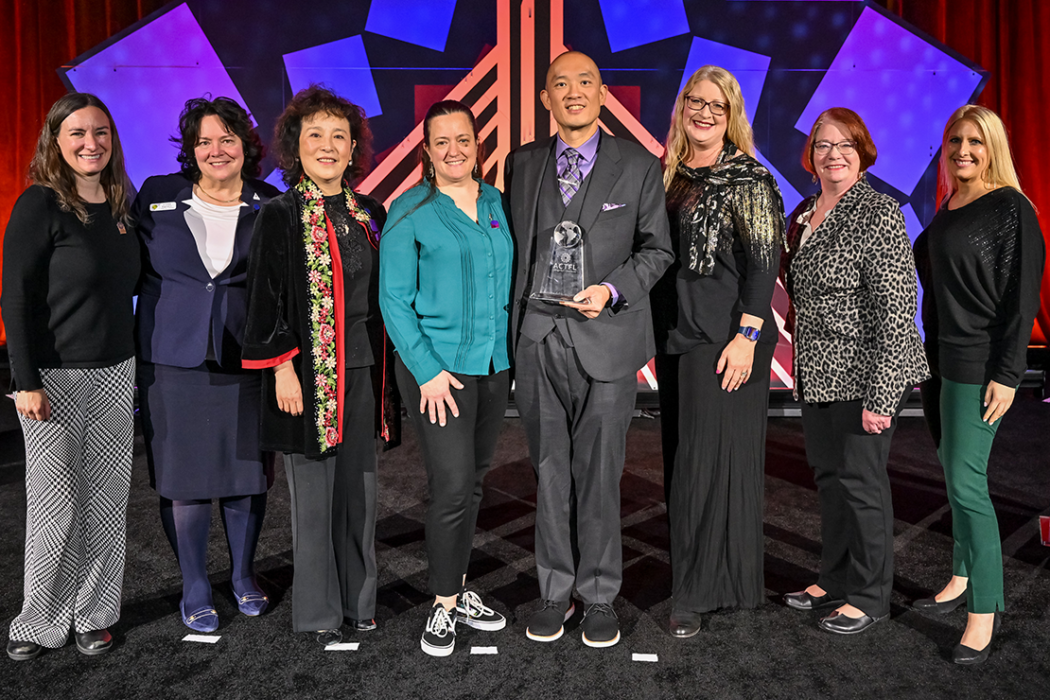2015 ACTFL National Language Teacher of the Year
Nicole Naditz
Bella Vista High School, Sacremento, CA

Our capacity to explore our world and connect with others in it—virtually or through travel—is significantly enhanced by our ability to communicate in more than one language. Stopping our comprehension at the borders of our native language inhibits our understanding of others and degrades our ability to fully participate and contribute in local and global communities. Being plurilingual increases academic success, facilitates travel, enhances international business and personal communications, augments our critical problem solving and creative processes, and fosters powerful connections with colleagues, family and friends overseas in ways monolingualism cannot.
Like many of my students, I was born into a monolingual family and learned French by taking classes in high school. Through ongoing, sustained study of French, I eventually became proficient. Clearly, this provided significant personal value to me in friendships, employment and travel. It also enhanced my academic success. While these benefits are among the easiest for our students and communities to understand, the true value of learning language and culture goes much deeper. My own path towards plurilingualism provides some insight into why.
Initially, as I moved from one level of French to the next in high school and college, I thought communicating was merely about stringing words together correctly: find the right word, put it in the right form, and my communication would be successful. The language classes I had taken largely reinforced this belief and rewarded my ability to choose words with good grades. But as my proficiency grew, I recognized that words aren’t enough: understanding the integral connection between culture and language is key to being “fluent” in a language and to truly understanding others. This became even more apparent with advent of tools such as Google Translate. Even with a lexicon composed of every word in the language, it often fails to communicate effectively because it lacks the ability to account for the degree to which cultural products, practices and perspectives shape communication.
In order to enhance relations in our communities and around the world and communicate effectively in personal and professional situations, we don’t just need the words from bilingual dictionaries. We need more direct contact with practices and perspectives different from our own. Increasing our global competence is imperative, and this starts with language and cultural study. Only through learning language and culture will students gain the ability to listen to diverse viewpoints without judging, converse without condescending, and befriend without demanding change. Only through learning language and culture do students learn to truly understand others.
This has huge implications for language teachers and I strive to teach in ways that reflect the values expressed here. To prepare and inspire tomorrow’s citizens—and to promote language fluency and cultural understanding—language and culture must be inextricably linked. My lessons, practice activities, assessments, and the real and virtual learning spaces I curate exemplify this belief.
My students’ school schedules say they are learning French. In fact, they are learning so much more. They are learning to be thoughtful in all of their communications; to consult the dictionary but to consider cultural practices and perspectives when selecting words. They are learning what I have learned: that the value of learning words alone is minimal, but the value of learning language and culture is immeasurable.




